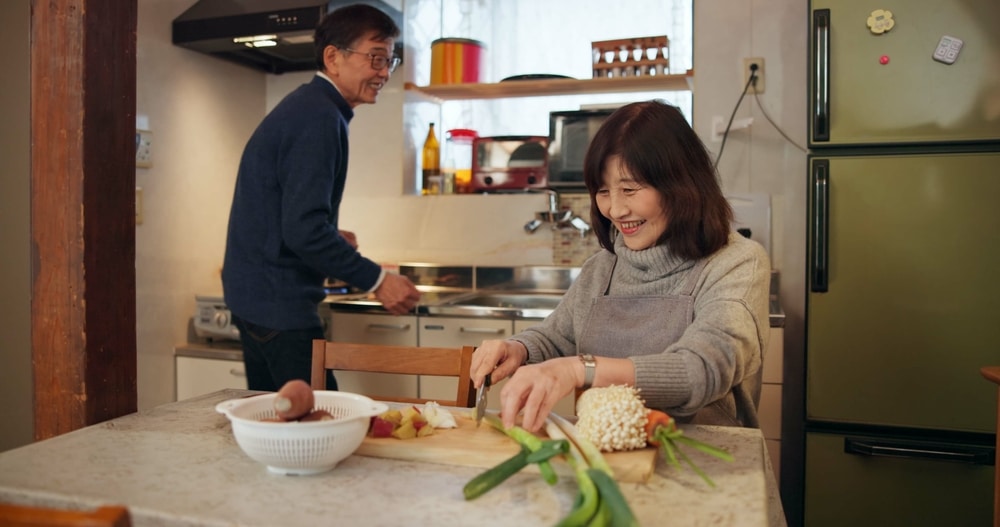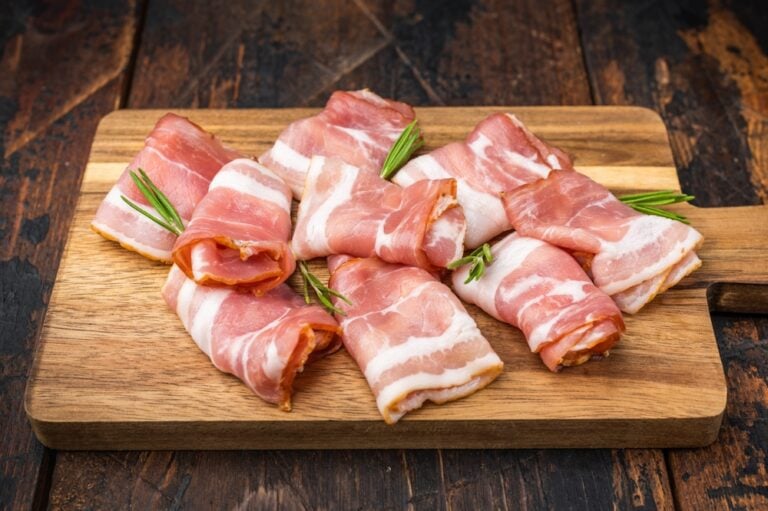The Okinawan diet is more than just a traditional way of eating – it’s a powerful lifestyle approach that has captivated researchers and health enthusiasts worldwide for its association with longevity and remarkable health benefits.
Known for fostering one of the highest concentrations of centenarians globally, the small Japanese island of Okinawa has earned its place as a “Blue Zone,” a rare area where people frequently live to age 100 or beyond in good health. This isn’t solely due to genetics. Experts believe that the unique plant-rich diet, along with an active and balanced lifestyle, plays a crucial role in their long lives.
While diets like the Mediterranean are celebrated globally for promoting health, the Okinawan diet remains somewhat lesser-known but equally impressive. In fact, mounting research shows that when people adopt the Okinawan style of eating, they experience benefits ranging from weight loss to improved blood sugar levels and better cholesterol profiles.
The Role of Diet in Okinawan Longevity
The Okinawan diet consists primarily of whole, unprocessed foods rich in antioxidants, phytonutrients, and anti-inflammatory compounds. Unlike many high-calorie diets, the Okinawan approach is low in calorie density but high in nutrient density, providing ample vitamins and minerals with each meal. This nutrient profile is critical, as it directly influences factors that drive aging, such as inflammation and oxidative stress.
According to Craig Willcox, a gerontology professor and co-director of the Okinawa Research Center for Longevity Science, the Okinawan diet is “low in calorie density and high in nutrient density and diber. It’s also “rich in phytonutrients, including lots of antioxidants. It’s low in glycemic load, and it’s anti-inflammatory.”
In recent years, scientific studies have provided evidence supporting the health benefits of the Okinawan diet. One study published in the journal Nutrients highlighted the impact of this diet on metabolic health. Participants who adopted an Okinawan-inspired diet for 12 weeks experienced measurable health improvements, including weight loss, reduced blood sugar levels, and improved cholesterol profiles. These findings align with broader research that links the Okinawan way of eating to better metabolic health and a lower risk of chronic diseases.
Beyond its physical health benefits, the Okinawan diet promotes a sustainable approach to eating. By focusing on plant-based, low-calorie foods, this diet supports not only human health but also environmental health. In Okinawa, food is often consumed mindfully, with an emphasis on small portions and a diverse array of vegetables, legumes, and whole grains. This balance reflects a cultural appreciation for both food quality and the natural environment, making the Okinawan diet a model for longevity and well-being.

Nutritional Foundations of the Okinawan Diet
The Okinawan diet is rooted in nutrient-dense, plant-based foods that prioritize long-term health and longevity. Unlike many modern diets, the Okinawan approach emphasizes low-calorie yet high-nutrient ingredients, which are carefully chosen to meet the body’s essential needs without adding unnecessary calories. Over 90% of the Okinawan diet comes from plants, filling each meal with vibrant vegetables, nutrient-packed legumes, and whole grains. This balanced selection supports the body without leading to issues like weight gain or rapid blood sugar spikes, which are common in diets that rely heavily on processed foods or excessive animal products. By keeping calorie intake low and nutrient intake high, this diet offers a balanced approach to sustainable health.
A defining quality of the Okinawan diet is its high concentration of phytonutrients—natural compounds found in plants that have significant antioxidant and anti-inflammatory properties. Phytonutrients are instrumental in combating oxidative stress, a process that can damage cells and tissues, speeding up the aging process and increasing vulnerability to chronic diseases. Okinawan staples like sweet potatoes, leafy green vegetables, and a range of seaweeds are particularly rich in these beneficial compounds. These foods don’t just sustain the body; they actively work to protect it, strengthening cellular health and minimizing risks tied to chronic diseases. By incorporating foods that are both highly nutritious and low in harmful components, the Okinawan diet supports a proactive approach to aging well.
The diet’s emphasis on low-calorie density is another factor contributing to its effectiveness in promoting longevity. Foods with low calorie density offer a high volume of nutrition without a high number of calories, allowing people to consume generous portions while keeping caloric intake moderate. This can be especially helpful for weight management, as it promotes a natural feeling of fullness without excess energy intake, reducing the chances of obesity and metabolic imbalances. Additionally, the Okinawan diet’s focus on fiber-rich foods, including root vegetables, legumes, and greens, aids in digestion and supports a healthy gut microbiome. This balance of nutrients is critical not only for digestive health but also for immune function, which is increasingly linked to gut health. The fiber in these foods keeps the digestive system functioning optimally, while also playing a role in preventing various diseases.
Through these unique nutritional foundations, the Okinawan diet embodies a well-rounded approach that nourishes the body while actively contributing to a longer, healthier life. By emphasizing whole, plant-based foods and avoiding unnecessary calories, this diet creates a solid foundation for sustainable health that aligns with the body’s natural rhythms and needs, supporting both immediate well-being and long-term vitality.
Core Foods in the Okinawan Diet
A defining feature of the Okinawan diet is its reliance on specific, nutrient-dense foods that have become staples of Okinawan culture. These core foods are carefully chosen for their health benefits and ability to support a balanced diet, focusing on high-quality carbohydrates, lean proteins, and a wealth of vitamins and minerals.
At the heart of the Okinawan diet is the sweet potato—a carbohydrate powerhouse that provides long-lasting energy without causing blood sugar spikes. Unlike the more common orange variety, Okinawans often consume purple or white sweet potatoes, which are rich in antioxidants and essential nutrients. Sweet potatoes make up a significant portion of Okinawan meals, offering fiber, vitamins A and C, and potassium. This staple alone is a great example of the low-calorie, nutrient-dense foods that are central to the diet.
Soy-based foods are another cornerstone, with tofu, soybeans, and miso soup appearing frequently in traditional Okinawan cuisine. These foods offer high-quality protein and essential amino acids that support muscle and tissue health. In addition, soy foods are low in saturated fat and have been associated with numerous health benefits, including reduced risks of certain cancers and cardiovascular diseases. The protein and phytoestrogens in soy are believed to support healthy aging, making it an ideal addition to a diet focused on longevity.
Okinawans also rely heavily on leafy greens and seaweeds, both of which add a unique variety of minerals and fiber. Leafy greens like spinach and mustard greens provide iron, calcium, and folate, essential nutrients for cellular health and bone strength. Seaweeds, rich in iodine and other trace minerals, offer nutritional benefits that support brain health and hormonal balance. Fruits, especially bitter melon and green papaya, are also popular, providing natural sugars in moderation along with vitamins and antioxidants that contribute to immune health and skin vitality.
These core foods represent the essence of the Okinawan diet: real, whole foods that offer maximum nutrition with minimal calorie density. Through this balanced selection, Okinawans can enjoy meals that are both satisfying and profoundly beneficial for their health.

Balanced Eating and Lifestyle Practices
The Okinawan diet goes hand-in-hand with a lifestyle that emphasizes balance, moderation, and a deep respect for natural rhythms. Beyond food choices, the Okinawan approach to eating and daily life plays a pivotal role in the health and longevity of its people. Eating habits in Okinawa reflect a mindful approach that prioritizes smaller portions, gradual consumption, and an overall lifestyle that embraces physical activity, community, and time outdoors.
One of the most distinctive practices in the Okinawan lifestyle is the concept of “Hara Hachi Bu,” which encourages eating until one is 80% full. By stopping before feeling completely full, Okinawans prevent overeating, which is known to stress the body and contribute to weight gain and metabolic issues. This practice helps maintain a naturally lean physique, promotes digestive health, and minimizes unnecessary calorie intake. It’s a powerful yet simple rule that aligns with the diet’s focus on nutrient density rather than calorie density, keeping the body fueled without excess.
Another key aspect is the Okinawan tradition of eating a variety of foods in moderation. Meals are often comprised of small portions of many different vegetables, legumes, and proteins, each carefully selected for its unique health benefits. This diverse approach ensures that every meal is packed with a range of vitamins, minerals, and antioxidants that support balanced nutrition. In contrast to diets that focus on larger portions of fewer foods, this variety reduces the risk of nutrient deficiencies and helps sustain overall health.
Okinawans also integrate physical activity naturally into their daily routines, which complements the diet’s benefits. Gardening, walking, and spending time outdoors are common in Okinawa, helping to maintain muscle strength, flexibility, and cardiovascular health well into old age. Additionally, social connections are highly valued, with community activities and family gatherings forming an essential part of life. This blend of balanced eating, physical movement, and social support enhances both physical and mental well-being, creating a lifestyle that fosters longevity and vitality on multiple levels.

My Personal RX on Emulating the Okinawan Diet and Lifestyle
The Okinawan diet offers a compelling blueprint for longevity and health that is worthy of global emulation. Embracing the Okinawan diet could offer a transformative approach to health in Western cultures, where dietary excesses are linked to many health problems. As a doctor, I recognize the value of incorporating elements from the Okinawan diet into our lives, but true success lies in practical steps that fit seamlessly into your daily routine.
- Make Super Greens Your Go-To Supplement: Add a daily dose of Super Greens powder to your routine to ensure you’re getting a full spectrum of superfoods, especially if fresh vegetables aren’t always accessible. This supplement brings essential nutrients right into your diet, supporting immune health and energy levels.
- Eat Until You’re 80% Full: Practice the Okinawan “Hara Hachi Bu” principle by stopping when you’re just slightly full. This approach helps prevent overeating, which not only aids in weight management but also gives your digestive system a gentle break.
- Focus on Variety in Every Meal: Think like an Okinawan and try to incorporate a wide variety of foods in each meal. Add different types of vegetables, legumes, and lean proteins, which will give you a balanced array of nutrients and support overall wellness.
- Incorporate Walking into Your Daily Routine: Regular, low-impact activity is key for long-term health. Walk more often throughout the day, or try gardening as a way to engage with nature while staying active.
- Follow a Holistic Health Protocol: Refer to my comprehensive Protocol that offers insights on holistic health. It’s like having a step-by-step playbook that covers not only diet but also mindset, movement, and balance—all essential aspects of an Okinawan-inspired lifestyle.
- Add Seaweed and Leafy Greens to Your Diet: Seaweed and leafy greens are nutrient powerhouses in the Okinawan diet, loaded with minerals like iodine and iron. Try incorporating them into your meals several times a week for optimal brain and immune health.
- Embrace Sweet Potatoes as a Staple Carb: Substitute regular carbs with sweet potatoes; they’re packed with fiber, vitamins, and antioxidants. This shift can provide lasting energy without spiking blood sugar levels.
- Take Moments to Eat Mindfully: Focus on eating slowly and savoring each bite. This will help you connect with your body’s signals, aiding digestion and making meals more satisfying.
- Engage in Social Activities Regularly: Building connections is a natural part of life in Okinawa and contributes to overall well-being. Prioritize time with friends or family, or find a community activity to join.
- Sip on Tea Daily: Okinawans often enjoy tea, particularly jasmine tea, for its soothing and anti-inflammatory properties. Make a daily tea ritual part of your routine to reap similar calming and health benefits.
Sources:
- Imatome-Yun, N. (2021, April 30). The Okinawa Diet: Eating and Living to 100. Blue Zones. https://www.bluezones.com/2017/05/okinawa-diet-eating-living-100/
- Colino, S. (2024, August 16). Why the traditional Okinawan diet is the recipe for a long life. Science. https://www.nationalgeographic.com/science/article/okinawa-diet-benefits-blue-zones
- Manoharan, L., Roth, B., Bang, C., Stenlund, H., & Ohlsson, B. (2023). An Okinawan-Based Nordic diet leads to profound effects on gut microbiota and plasma metabolites linked to glucose and lipid metabolism. Nutrients, 15(14), 3273. https://doi.org/10.3390/nu15143273











 Subscribe to Ask Dr. Nandi YouTube Channel
Subscribe to Ask Dr. Nandi YouTube Channel









